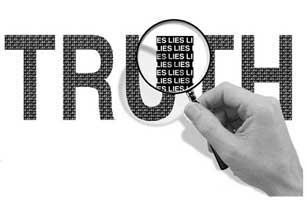

The key questions, then, are perhaps not about 'truth' or 'lies'. It's a fact that we all take certain parts of our lives for granted, and so there can be no such thing as a 'non-ideological consciousness'. A moment's thought will show that our consciousness is not formed from the 'realities' or 'truths' of the world but from so-called 'cultural truths', what Karl Marx called society's dominant ideologies.
Perhaps the only honest way we can use the word ideology is to unmask it for what it is and realise that, to do this, we need to include our own ideologies in the process of thinking about ideologies in general. Besides trying to figure out others' ideologies, we each need to ask ourselves about what we consider to be 'common sense' or 'beyond question' - and how these ways of thinking themselves act to reinforce received values and attitudes that themselves reinforce power structures in society and cultures.
The analysis of ideology - of those aspects of society that reinforce particular attitudes, values and ways of thinking - needs to be a continuous process of asking questions about those things we take for granted. If we do this of our own and others' everyday thoughts about life, society, the people in it, and the way we behave and think together - then we will come to see that much of life is ideological in origin and serves best not everyone but but - in world terms - rather a few. Marx called this privileged sector, the bourgeoisie; the remainder he termed the proletariat.
In the next few pages you will see an image from an American newspaper being 'ideologically deconstructed'. It will help you to see the potential power of ideology as well as show you how to analyse texts of your own.